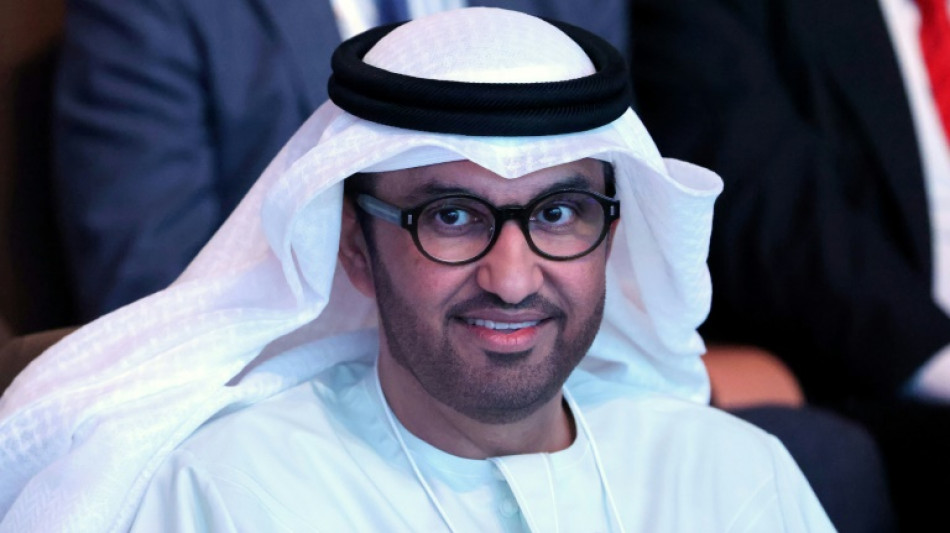

Climate maths 'doesn't add up' without carbon capture: COP28 chief
The Emirati oil chief leading this year's UN climate talks said Wednesday the world must get "serious" about new emission-capturing technology, rather than focussing only on replacing fossil fuels with renewable energy.
Sultan Al Jaber said renewables such as solar and wind "cannot be the only answer", especially in the steel, cement and aluminium industries, where emissions are particularly hard to reduce.
While major oil producers Saudi Arabia and the United Arab Emirates are touting carbon capture and storage as a remedy for global warming, some experts caution that the nascent technology is unproven and expensive, and should not replace efforts to phase out hydrocarbons.
"Renewable energies are not and cannot be the only answer," argued Al Jaber, who is simultaneously the head of state oil giant ADNOC and the country's climate envoy.
"If we are serious about curbing industrial emissions, we need to get serious about carbon capture technologies," he told the United Arab Emirates' Climate Tech event in Abu Dhabi.
"We need to phase out emissions," added Al Jaber, reiterating his position that crude remains indispensable to the global economy and crucial to financing the energy transition.
- COP battleground issue -
The debate between carbon capture and reduced fossil fuel use is shaping as a key battleground at COP28, beginning in November in Dubai, the UAE's commercial hub.
Earlier this year, the UN's climate expert panel (IPCC) said the world risks crossing the key 1.5-degree Celsius global warming threshold in about a decade, urging a drastic reduction in planet-heating emissions.
One of the fastest transformations will need to be in energy, the report said, with solar and wind power already expanding dramatically.
Major economies are taking key steps, with the European Union banning sales of new fossil fuel cars from 2035 and planning to nearly double renewable energy production by 2030.
But greenhouse gas emissions from existing fossil fuel infrastructure will still push the world beyond 1.5C unless the costly and emerging carbon capture and storage technologies are utilised, the IPCC said.
"Cost remains a barrier," said Al Jaber, president-designate of COP28.
He said policymakers must provide incentives to companies to commercialise technological solutions, including carbon capture and storage (CCS) and direct air capture (DAC).
CCS syphons off CO2 pollution from energy production and heavy industry and stores it underground, thus preventing it from entering the atmosphere.
By contrast, direct air capture -– still in its infancy -- removes CO2 directly from ambient air, which makes it a "negative emissions" technology.
- 'Distraction we can't afford' -
Some environmentalists are sceptical about the focus on carbon capture, with Rex Weyler from Greenpeace last year labelling it a "scam".
"Carbon offset technologies are a distraction that we cannot afford," Julien Jreissati, programme director at Greenpeace MENA, told AFP on Wednesday.
"They have yet to be commercially viable and are not proven at scale despite years of development and billions of dollars of investment."
Worldwide, there are about 35 commercial facilities applying carbon capture, utilisation and storage to industrial processes, fuel transformation and power generation, with a total annual capture capacity of almost 45 million tonnes of CO2, according to the International Energy Agency.
Current global CO2 emissions from all sources are about 40 billion tonnes.
Novel DAC technologies only account for a tiny fraction -- about 0.1 percent -- of worldwide carbon dioxide removal, the first global assessment of CO2 removal said in January.
The report stated that capping global warming at liveable levels will be impossible without massively scaling up the extraction of planet-warming carbon dioxide from the atmosphere.
D.Adrovic--LiLuX



